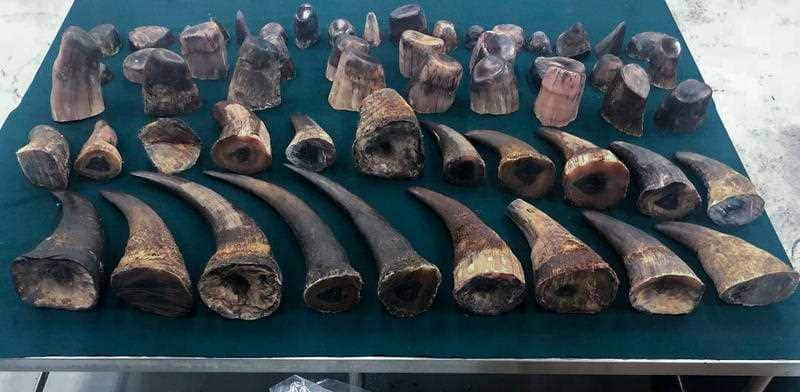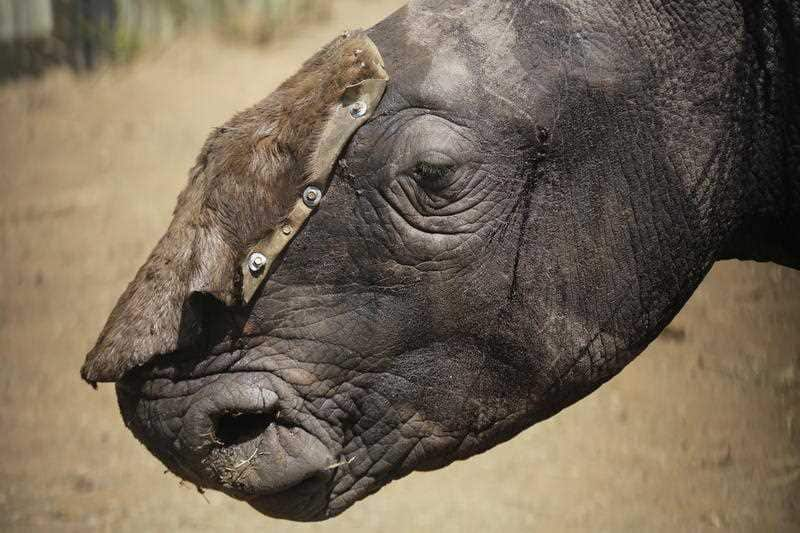Two South African men have been caught with 167 rhino horns - one of the biggest ever hauls.
Clive John Melville, 57, and Petrus Stephanus Steyn, 61, both from the southern city of Port Elizabeth, have appeared in court on charges of trafficking rhino horns.
The two will remain in custody until 26 April when they will apply for bail, said Brigadier Hangwani Mulaudzi, spokesman of an elite police unit that investigates specialised types of crime known as the Hawks.
They were arrested on Saturday in the Hartbeespoort dam area, north of Pretoria following a tip off that there was a car transporting rhino horns.
Police said the rhino horns worth a "substantial amount of money" were destined for the Southeast Asian markets.

Demand for rhino horn is primarily fueled by consumers in China and Vietnam where it is advertised by some traditional medicine practitioners as a wonder ingredient.
In reality rhino horn is comprised of little more than keratin, the same protein that makes human hair and fingernails.
Nonetheless, horn can fetch up to $60,000 per kilogram in Asia, stoking lucrative transnational crime networks that have decimated rhino populations in recent decades.
South Africa, which is home to about 80 percent of the world rhino population, has been hit hardest.
In 2018, 769 rhinos were poached in South Africa alone. More than 7,100 animals have been killed over the past decade.

The country is also home to the world's largest privately-run rhino farms.
In 2017, a leading private rhino breeder John Hume organised an online rhino auction after South Africa's top court lifted an eight-year moratorium on the domestic trade of rhino horns.
Breeders harvest the horns by tranquilising the animals and cutting them off -- a technique they say is humane and wards off poachers.
Photographs circulated in the local media after the weekend seizure show horns with markings indicating weight and others that appear to be registration numbers.
"These suggest that the horns came from a stockpile of some kind, possibly a private stockpile," Julian Rademeyer, a project leader at TRAFFIC, the international wildlife trade network, told AFP.
The way the horns have been cut "looks as though (they were) professionally cut with an electric saw -- again this could point to the possibility that some of the horns came from rhinos that had been de-horned and not necessarily from poached animals," added Rademeyer.

